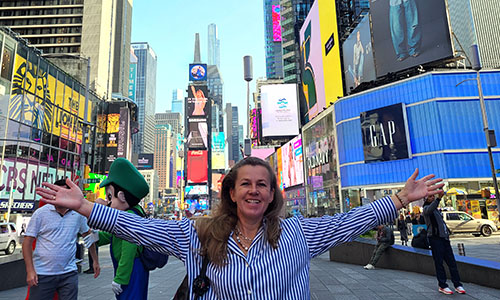Q&A with Jurate Baubliene

The following is a Q&A with Jurate Baubliene, CMA, who serves as the financial controller at Whalar.
Can you tell us about your career journey?
We all have extensive resumes, but to sum up: I graduated from Vilnius University with a degree in production economy and management. After graduating, I worked at the National Stock Exchange of Lithuania (currently Nasdaq Vilnius) for a few years. In 2000, I moved to the United States, where I started my career as a staff accountant, and I’ve been working as a controller for about a decade now.
What prompted you to begin pursuing your CMA?
Once in the U.S., I realized that if I wanted to achieve more than a senior accountant or accounting manager role, I should have a professional certification in addition to graduating from a European university. I needed something more universal and easily recognized in the accounting and finance profession. And I couldn’t be happier that I chose this path.
How do you think earning the certification will benefit your role in your current career?
I’m confident that the CMA® (Certified Management Accountant) certification will continue to benefit me in the years to come as it did in the past. For example, when Unidos Financial Services merged with i-Transfer and relocated to Denver, I got an offer to relocate with them in a controller role. However, I didn’t need to follow the company, as being CMA-certified helped me to get a controller job at another company in New York City. Similarly, when Reputation Institute relocated from NYC to Boston due to cost savings, I once again had an offer to relocate, but I didn’t need to. Having the CMA certification not only helped me land in a controller position at great companies, but it also gave me the sense of freedom. There was no need to follow any company, as I could stay and continue to do what I love in New York.
What do you think are some of the biggest challenges facing accounting and finance leaders today?
I think the biggest challenge is the ability to focus on more analytical and strategic work as opposed to daily accounting. With accounting systems automation and AI, we’re able to automate most accounting functions, but we are still spending a lot of time verifying data and fixing broken links, feeds, APIs, etc. The question is not whether to automate accounting functions anymore, but what system will be more reliable, more robust, more efficient. It’s not a question if we can close our accounting books in four to five business days, but how we can close them in real time with reliable data—and using all that time analyzing numbers and telling a financial story as opposed to closing the books and generating financial reports.
What’s the best piece of advice you would give to students/young professionals seeking a career in accounting and finance?
If you can envision it, and dream about it, then you can achieve it. Definitely seek and get a professional designation in addition to a university/college degree. It doesn’t cost much to get the study materials and pass the required exams, but without a doubt, it pays you back a long way. It is also very well recognized among accounting and finance professionals, not to mention that having the CMA certification provides you with plenty of networking opportunities. It also keeps you up-to-date as you are required to complete 30 CPE credits each year.
How did the CMA help with landing your job in the U.S.?
I received my CMA certification while already working in the U.S., but it helped me climb the career ladder, and provided me with the freedom to live and work where I choose to.

